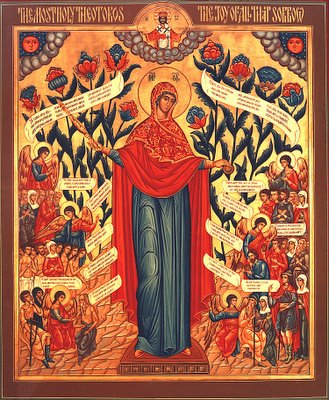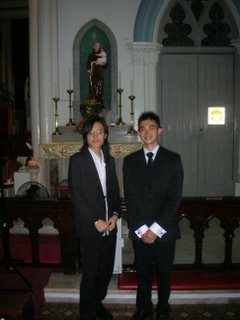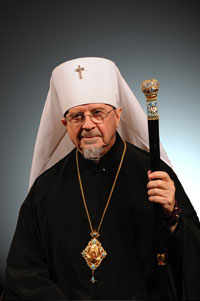After requesting many friends to complete
this quiz, many had questions as to what these various beliefs (if I
may describe them as such). These beliefs largely died down by the 15th century, but many continue to exist today in various guises – Jehovah’s Witnesses, for example, are a curious blend of Arian and Gnostic theologies.
I have prepared a short summary of these beliefs below. Gnosticism is left out at this point, due to its complexity as a religion and its many and varied schools of thought. Come tomorrow (or tonight, if I have the time), I will discuss the worst heresy to have affected the Church for all time – the heresy of modernism.
AdoptionismView that Jesus was born a human only, not divine until his baptism – at which point he was adopted as the Son by God the Father
Declared heretical by Pope Victor I
Albigensian (Catharism)View that God created heaven but Satan (a lesser deity) created the earth; thus the human spirit (the vital essence of humanity) was trapped in a flawed physical realm
Condemned as a heresy by Council of Tours (1163), Third Lateran Council (1179) and Fourth Lateran Council (1215)
Dominican Order established in 1216 to combat Cathars
ApollinarianismView that Jesus had a human body but a divine mind
Condemned as a heresy by the First Council of Constantinople (2nd ecumenical council) in 381
ArianismView that the Father and the Son were not co-eternal (pre-incarnate Jesus being merely a divine being but nonetheless created by the Father at some point)
Condemned as a heresy by the First Council Nicaea (1st ecumenical council) in 325
Beliefs compared to Arianism include that of the Unitarians, Jehovah’s Witnesses, Christadelphians and Muslims
DocetismView that Jesus did not have a physical body, therefore the crucifixion was an illusion
Incidentally, Islam also teaches that the crucifixion was an illusion (see Qur’an 4:157)
DonatismEmphasized mystical union; placing great emphasis on sanctity
Looked upon by Anabaptists and other radical churches as historical predecessors
Modalism (Sabellianism)View that three persons of the Trinity are merely different modes/aspects of God rather than three distinct persons
MonarchianismView that emphasizes God as being one (that God is the single and only ruler)
Not a complete theory of relation of the Father, Son and Holy Spirit
MonophysitismView that Christ only had one nature – two major monophysite doctrines exist (Apollinarianism and Eutychianism)
Eutychianism holds that the human nature of Christ was obliterated by the divine
Condemned as a heresy at the Council of Chalcedon in 451
Contrary to popular belief, the Oriental Orthodox Churches do not hold on to Monophysitism (or any variants), rather, they adhere to miaphysitismNestorianismView that Jesus existed as two persons – the man Jesus and the divine Son of God – rather than a unified person
Condemned as a heresy by the Council of Ephesus (3rd ecumenical council) in 431
Rather inappropriately named since Nestorius himself denied holding this viewPelagianismView that original sin did not taint the human nature (which, being created from God was divine) and that mortal will is capable of choosing good or evil without divine aid
Condemned as a heresy by the Council of Ephesus (3rd ecumenical council) in 431
Socinianism (Psilanthropism)View that rejected the Trinity and the divinity of Jesus
Condemned as a heresy by the First Council Nicaea (1st ecumenical council) in 325
















